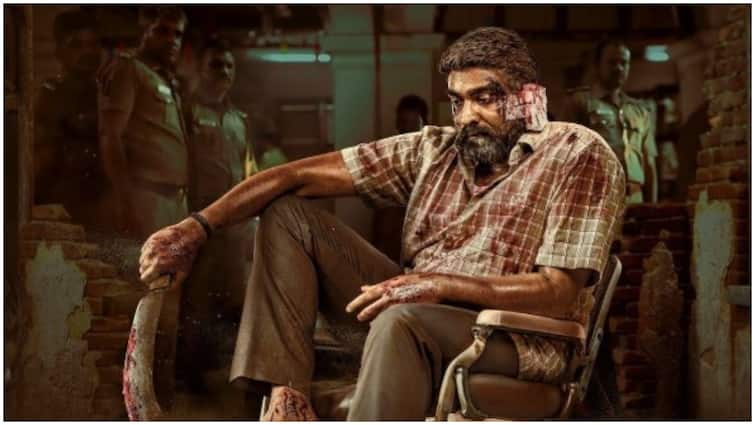Tamil film “Maharaja”, the first Indian film to be released in China after last month’s agreement to normalize relations between the two countries to end the standoff in eastern Ladakh, earned nearly Rs 16 crore on the first day of its release on Friday. Is of.
According to cinema ticket sales portal Maoyan, the Vijay Sethupathi-starrer collected around RMB 13.37 million (Rs 15.6 crore) at the box office in China.
Prior to its release, the film achieved a high rating of 8.7/10 on the Chinese film review site Douban and was considered “one of the highest-rated Indian films in recent years”.
Directed by Nithilan Swaminathan, “Maharaja” also stars Anurag Kashyap, Mamta Mohandas and Natty Natraj.
The film is based on Maharaja (Sethupathi), a barber in Chennai, who goes to the police station to get back his stolen dustbin, but the police officers discover that he has other intentions.
“Maharaja” received an excellent response when it released on Indian screens on June 14 and grossed over Rs 100 crore domestically.
This is the first Indian film to be released in China after the two countries agreed to de-escalate patrolling and disengagement of troops along the Line of Actual Control (LAC) in eastern Ladakh, a major breakthrough to end the border standoff of more than four years. . impasse
Prime Minister Narendra Modi and Chinese President Xi Jinping endorsed the agreement at their meeting in Kazan, Russia on October 23 on the sidelines of the BRICS summit and issued directives to revive various bilateral dialogue mechanisms and normalize relations that were at a standstill. Were affected by military clashes. 2020 in Galwan Valley.
Indian films “Three Idiots”, “Dangal” and “Secret Superstar” starring Aamir Khan were some of the biggest box office successes in China in recent years.
China has approximately 86,000 theaters throughout the country, the most in the world.
Chinese film critics say that “Maharaja” is expected to perform very well.
The film’s strength lies in its distinctive cultural expression and unique narrative technique, Douban film critic Wang Peiyu previously told the state-run Global Times.
As a suspense film, “Maharaja” uses editing techniques to cleverly hide the protagonist’s major actions, adding multiple subplots to confuse the audience. He said, through cross-cutting, it creates a sense of simultaneity and carefully constructs a labyrinthine narrative.
Wang said that many Chinese film audiences have expressed that the film’s theme, which deliberately misleads the audience and reveals the truth in the end, leaving the audience stunned, is too difficult for the language and cultural audience to connect with Chinese audiences. Can break barriers.
He explained that this subversive narrative approach not only gives the film a strong sense of sophistication, but also makes it a standout in its genre, establishing it as a true blockbuster.
A viewer named Lee, who watched a pre-screening of “Maharaja”, said that the film continues the tradition of recent Indian films that focus on social issues, as well as religious beliefs and morals from Indian culture. Also includes concepts.
Li told the daily that for Chinese audiences, such films not only provide intellectual stimulation but also provide an opportunity to understand Indian culture from a different perspective.
Indian films have established a strong presence in the Chinese market in recent years. He said, from ‘Dangal’ to ‘Secret Superstar’, these films have sparked discussion among the audiences with their true emotions and social issues.
Wang said Indian films have not only performed well at the box office, but also consistently won the hearts of Chinese audiences with their distinctive themes and deep social issues.
Films such as “Maharaja” often have a strong moral core, closely linked to traditional Indian values. This is one of the major differences, Wang said, compared to the more secular or individualistic narrative styles found in many Western films.
He pointed out that in contrast, many Western suspense films focus more on psychological elements, dealing with themes of betrayal and justice, and rarely delve into cultural background.
He said, compared to Hollywood blockbusters like “Gladiator II”, which attract attention with their global impact and epic construction, films like “Maharaja” have a different kind of appeal in the international market through their unique regional and philosophical elements. Presents.
(This report has been published as part of an auto-generated syndicated wire feed. Apart from the headline, there have been no edits to the copy by ABP Live.)
